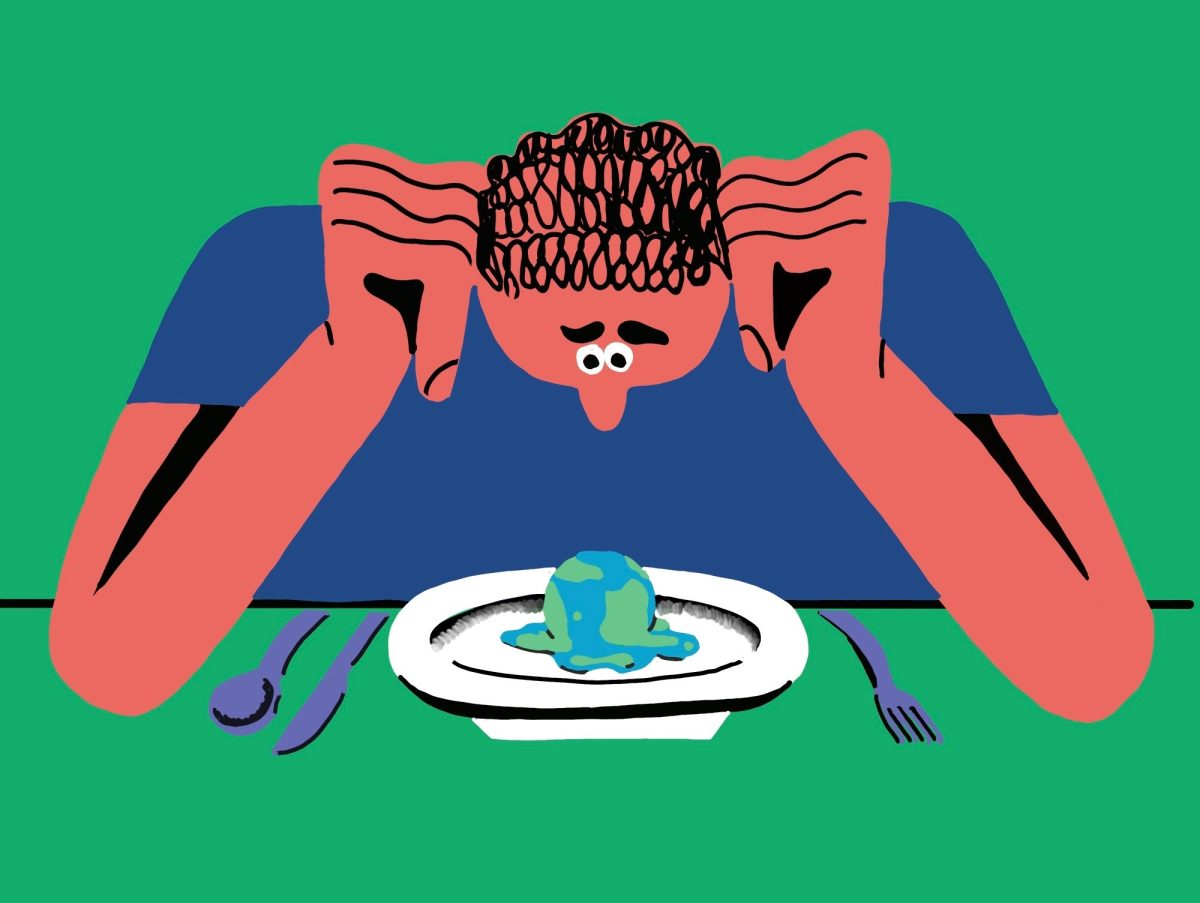Most of us, whether during childhood or well into adulthood, have refused to eat some sort of healthy food. Whether rejecting a side salad at dinner or having a parent ‘airplane’ a forkful of broccoli into your mouth as a toddler, we are told we should all eat greens because they are “good for us.” You may recall the “perfect plate” graphic employed by nutritionists and primary school health teachers, which demonstrates that the nutrients found in vegetables and other produce are essential dietary components for human health. However, climatologists claim there are benefits to healthy eating that extend well beyond individual longevity. In fact, a recent investigation by the Potsdam Institute for Climate Impact Research (PIK) claims that healthy diets may increase the atmospheric carbon budget to such an extent that global warming does not exceed the dreaded 1.50 degrees Celsius threshold. In my opinion, adopting healthy diets will not alone solve this issue.
According to research findings made public by NASA, by the end of 2023, scientists were able to conclude that the global average temperature has increased by 1.36 C since the mid-19th century. I invite you to consider the fact that each year in the past decade has been among the warmest ever recorded. With this in mind, you may be wondering how an act as trivial as adopting healthier dietary habits could contribute meaningfully to stalling the remaining 0.14o increase in warming. Especially considering the poor prognosis of the Earth despite massive sustainability initiatives, your skepticism is warranted. The Potsdam Institute addresses this in their findings.
PIK concluded in their study that the carbon budget of the Earth would be drastically expanded if more people were to adopt what they call the EAT-Lancet Planetary Health Diet. Commonly referred to as a flexitarian diet, the EAT diet is one that “features a wide variety of plant-based foods, a marked reduction of livestock products especially in high- and middle-income regions, and restricts intake of added sugars, among other things.” In order to demonstrate the impact of this lifestyle, PIK utilized REMIND-MagPIE, an energy-economy equilibrium simulator, to prove that a global shift towards the EAT-Lancet Planetary Health Diet by 2050 would increase our carbon budget by approximately 43 percent.
But I am left wondering how the global implementation of this type of diet would happen. The inflation of the carbon budget is also not mitigatory. I find it irresponsible of scientists to seemingly imply through their promotion of this diet that it is the responsibility of the everyday person, who contributes little to global warming, to change their diet to accommodate the emissions of greenhouse gasses (GHGs) from conglomerates and CEOs. Further, if more carbon is able to be emitted due to the everyday person taking on this burden, this will, in my opinion, only incentivize companies — who would presumably not adopt this new lifestyle — to produce even more GHGs. We need to consider how a more flexible carbon budget would realistically ‘help’ the everyday person.
In theory, refining our dietary interests and allowing harmful products to be marked down would diminish the incentive of companies to deforest, contribute nitrous emissions in the development of artificial foods and perform similar practices. Of course, if you remove the consumers from the market, the products fail. However, what climate scientists often refuse to consider is that the market does not die off when the product does; it adapts and returns ten-fold. A human need for processed meats can likely die. A need for money? Perhaps not.
If we all become vegetarian, let’s say, maybe animals would be left alone. But, businesses cannot be expected to simply accept the new status quo: Fast food chains will not shut down internationally, nor will local restaurants close their doors in solidarity with the movement for a more flexitarian diet. I imagine they will attempt to compete with small, ‘eat green’ companies and community vendors and will certainly dominate them with their influence and market prowess. As they rush to slaughter herds of animals in the status quo, these same giants of the food and beverage industry will rush to harvest plants and transmute them into processed foods that hardly pass as ‘healthy’ today.
By limiting global diets to plants and their byproducts, particularly in an era of hyperconsumerism, scientists may be sealing all of our fates to one of domination and extinction. To prevent us from cutting the head off of the food chain, scientists have advised us to uproot the chain entirely.


















